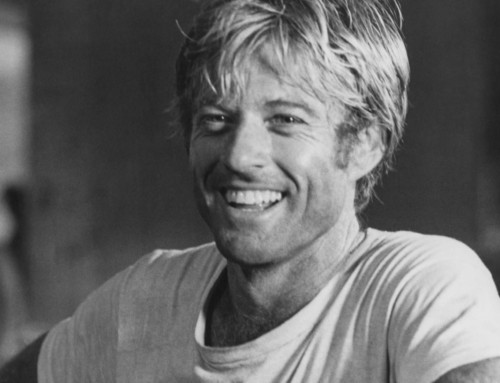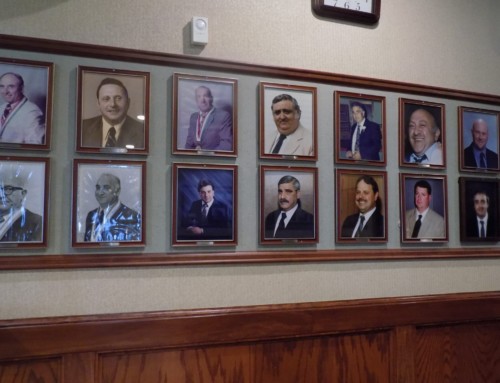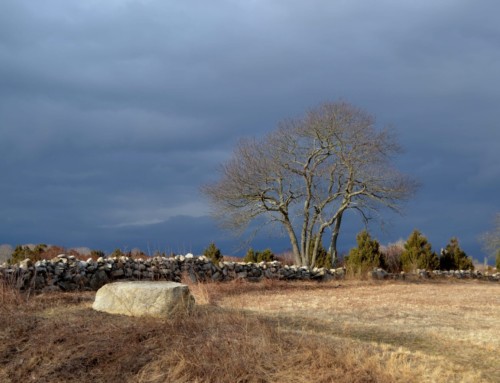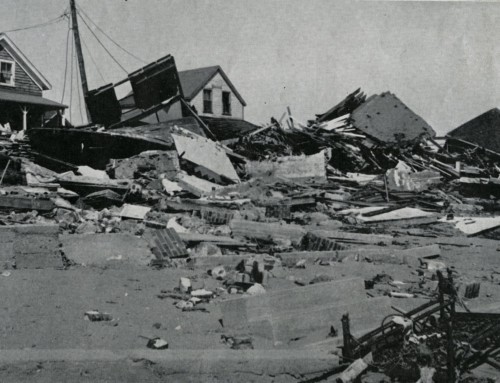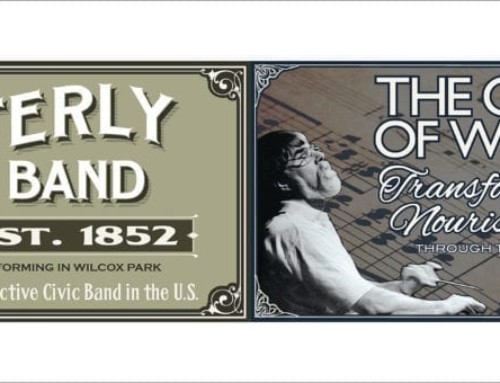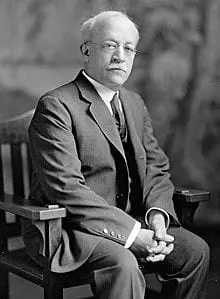
George Herbert Utter was born on July 24, 1854, in Plainfield, New Jersey, and was the only child of George Benjamin Utter and Mary Starr Maxson.[1] The elder George Utter was the founder and printer of The Sabbath Recorder, a weekly newspaper for Seventh Day Baptists which he began on June 13, 1854, just a month before his son’s birth, and is still in print today.[2] Although the Utter family made their home in Plainfield, the Recorder was published at 9 Spruce Street in the heart of Lower Manhattan.[3]
In 1861, George H. Utter came to Westerly with his parents where his father continued to work as a printer and publisher, founding the Narragansett Weekly with his brother, J.H. Utter.[4] George H. graduated from Westerly High School and then went on to attend Alfred Academy (later Alfred University) in Alfred, New York, a school associated with the Seventh Day Baptist Church.[5] The Seventh Day Baptist faith was incredibly important to the Utter family.
George H. Utter was baptized at the Pawcatuck Seventh Day Baptist Church with which he would remain affiliated for the rest of his life, on April 11, 1874.[6] After two years in western New York at Alfred Academy, George H. Utter completed his college education in Massachusetts, graduating from Amherst College as part of the class of 1877.[7] While at Amherst, he was a member of the Delta Kappa Epsilon fraternity.[8]
After graduating from Amherst, George became associated with his father and uncle, J.H. Utter, in their publication of the Narragansett Weekly where the younger Utter was serving as an editor in 1880.[9] On May 29, 1883, he was named Aide-de-Camp (a personal assistant who is also usually a high ranking military officer) to Governor Augustus O. Bourn, and at the same time, he was made a Colonel in the Rhode Island Militia.[10]
This was his first appointed or elected role and would serve as his first experience in politics. He would serve in this role until 1885. Beginning in 1885, Utter was elected as a Representative in the Rhode Island General Assembly, where he would remain until 1888. During this final year, he served as the Speaker of the House.[11] While working to represent the people of Westerly at the State House in Providence, he continued to serve those same people in other ways, specifically as a publisher. Upon the death of J.H. Utter in 1886, the younger George Utter was taken into the Narragansett Weekly firm with his father.[12]
After serving four years in the House of Representatives, George H. Utter continued his political ascent when he was elected to serve in the State Senate from May 1889 to 1891. During that time, he was an active part of the State’s Judiciary Committee, acting as Chairman in 1891.[13] Although he was a lifelong Republican, Utter’s political career commanded respect from members of both parties. It was said that “While he was a staunch Republican, he was not the sort of partisan who stood for everything his party did. He went with his party so long as he believed it to be right, at least in a moral sense, and when it ceased to be that he did not follow it.”[14]
This was especially true in his later years when he was known to oppose the Republican “boss” Charles Brayton, whom he “refused to follow…blindly or otherwise.”[15] Such was Brayton’s respect for Utter’s political acumen that in a letter dated November 3, 1906, in response to Utter having referred to Brayton as a political “boss” (a common suggestion throughout his career), Brayton wrote “I feel whatever you may have said or done with reference to my being a so-called “boss” was from a sense of duty, which has always governed your actions.”[16]
[su_accordion class=””] [su_spoiler title=”Footnotes” open=”no” style=”default” icon=”plus” anchor=”” class=””]
[1] The National Cyclopedia of American Biography, vol. 13, (1906), pg. 333.
[2] The Sabbath Recorder, 13 June 1854, vol. 1, no. 1.
[3] The Sabbath Recorder, 27 July 1854, vol. 1, no. 7.
[4] George Herbert Utter Memorial Addresses Delivered in the House of Representatives and the Senate of the United States, (Washington, D.C., 1914), pg. 39.
[5] George Herbert Utter Memorial Addresses Delivered in the House of Representatives and the Senate of the United States, (Washington, D.C., 1914), pg. 9.
[6] The First One Hundred Years: Pawcatuck Seventh Day Baptist Church, (Westerly, RI, 1940), pg. 114.
[7] George Herbert Utter Memorial Addresses Delivered in the House of Representatives and the Senate of the United States, (Washington, D.C., 1914), pg. 9.
[8] Amherst College, Olio 1877, pg. 26.
[9] Household of George B. Utter, Westerly, Washington, Rhode Island, 1880 United States Census, Roll: 1211; Page: 487C; Enumeration District: 162.
[10] Utter Scrapbook, Courtesy of the Westerly Historical Society, Certificate of Appointment as Aide-de-Camp to the Commander in Chief, 29 May 1883.
[11] Representative Men and Old Families of Rhode Island: Genealogical Records and Historical Sketches of Prominent and Representative Citizens and of Many of the Old Families, (1908), pg. 146.
[12] George Herbert Utter Memorial Addresses Delivered in the House of Representatives and the Senate of the United States, (Washington, D.C., 1914), pg. 39.
[13] George Herbert Utter Memorial Addresses Delivered in the House of Representatives and the Senate of the United States, (Washington, D.C., 1914), pg. 40.
[14] George Herbert Utter Memorial Addresses Delivered in the House of Representatives and the Senate of the United States, (Washington, D.C., 1914), pg. 24.
[15] Minkins, John C., “There Were Giants in Those Days: George H. Utter” Providence Daily Evening News.
[16] Utter Scrapbook, Courtesy of the Westerly Historical Society, Letter from Charles R. Brayton to George H. Utter, 3 November 1906.
[/su_spoiler] [/su_accordion]
